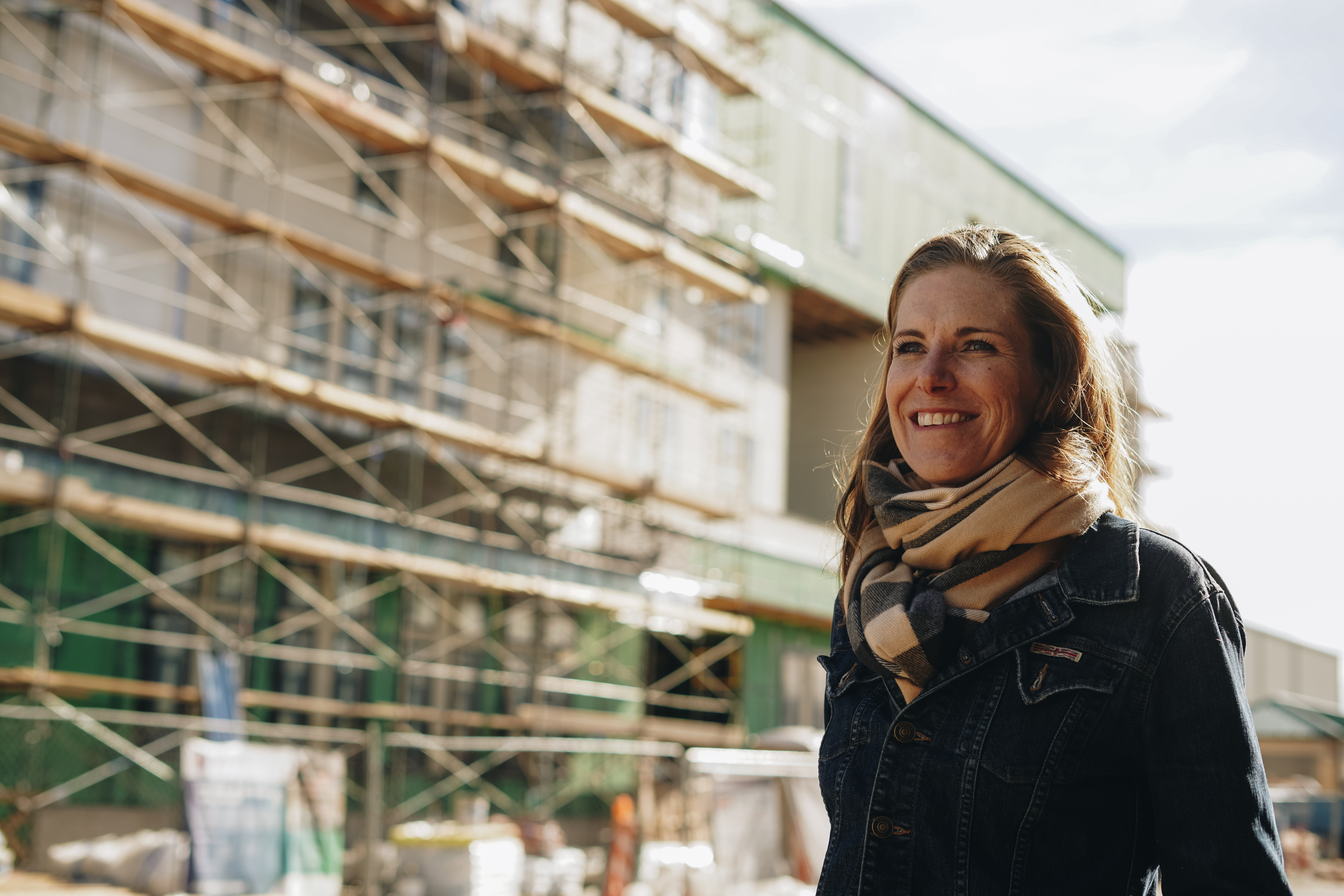Some people hang memorabilia about graduations or weddings, but David Jennings proudly framed an old t-shirt.
“That was from my old case manager who would wear that during outreach,” he said. “It represents a time in my life where things really changed.”
Jennings was 15 years old when his time at the child homeless shelter came to an end. “I was too old to open up a social services case but too young to be on my own,” he said. The case manager there told him about a program called Urban Peak.
- David Jennings, Board Secretary at Urban Peaks
“It was a place I could go, where I didn’t have to worry about getting kicked out,” said Jennings. “I had come from a very abusive background with my family and going back home wasn’t an option.”
After walking dozens of blocks, he finally reached Urban Peak. “I knew this place was going to change everything because I didn’t have to wake up the next morning and worry about food, or where I was going to do my laundry or go to the restroom.”
A feeling Jennings hadn’t felt before. “It was scary, but at the same time it was this new hope that I no longer had to worry about turning out the way I had seen friends or family members turn out,” he said.
Jennings was at Urban Peak’s shelter for just a few months before he moved into more permanent housing. Altogether, he was at Urban Peak for about two years when he met his wife.
“Between the therapy and the support that I had, I was able to finish high school and work full-time,” said Jennings. During his time at Urban Peak, their case managers connected him to therapy, job training, and transportation to help him complete all those goals within the two years he was there.
Jennings now runs a business with his wife called Metro Medicaid Consultants, which helps seniors or people with disabilities get long-term care. He is also secretary of the board and chair of the programs committee at Urban Peak.
Urban Peak provides services for youth experiencing homelessness between ages 15 and 24. Their services include drop-in and street outreach for basic needs like socks, vital documents, showers, and meals. They also offer overnight shelter, supportive housing, case management, and support services, including a medical clinic and workforce development.
- Christina Carlson, CEO of Urban Peak
Their supportive housing program serves about 150 youth a year. “We know every young person who comes to us has experienced significant trauma,” said Christina Carlson, CEO of Urban Peak. “Trauma-informed care starts with, ‘What happened to you?’ instead of ‘What’s wrong with you?’” explained Carlson.
Their support services team is made up of specialists in education, employment, medical, clinical, and social-emotional support. It needs to be a trustworthy and holistic approach because Carlson says most of these kids have never experienced a positive relationship with an adult. “You don’t do that by bouncing people around.”
Urban Peak serves about 1,000 youth a year.
The Denver Foundation has had a significant impact on Urban Peak, both monetarily but also in its support of the organization’s diversity, equity, and inclusion efforts. “As an organization, I’m very committed to this concept that I heard [former CEO] David Miller say when he was running The Denver Foundation. He said organizations should reflect the populations they serve,” explained Carlson. This remains a benchmark for her to this day.
With the support of The Denver Foundation and its donors, Urban Peak is able to imagine, conceptualize, and execute projects like the Mothership. “It’s our outside-the-box, innovative campus that we’re building at our old site,” explained Carlson.
Think about the Mothership as a campus with different levels. On the first floor, there is a space for minors with shared community space. The second and third floors are like neighborhoods with shared living and dining. There will be six neighborhoods serving different groups; parenting and pregnant youth, migrants, people with intellectual and developmental delays, people coming out of the foster care system, independent working people, and a neighborhood for those in recovery. The fourth floor is the well-being space with a tech lab with a classroom, behavioral health space, counseling, and other supportive services.

Urban Peak will increase their shelter beds from 30 to 136. “We are going to blow the model of what everyone else is doing away,” said Carlson.
“Let’s invest in the work of preventing homelessness by supporting our youth,” said Carlson.
The Commons, the dining and community space in the Mothership, will be named after Jennings and fellow board member Dick Thomas. “He reminds me every single time I talk to him that he’s doing this work because he loves what the organization is,” said Carlson. “Not only because of what it did for him but because of what he thinks it can do for others.”
The ways Jennings has given back to Urban Peak are immeasurable, the naming of the space is in honor of everything he represents.
“Urban Peak will always be in my life,” said Jennings. “That’s the true power of Urban Peak. It gives you community and unconditional hope.”
The Denver Foundation believes adequate, accessible housing is essential for a community to function. Affordable housing is a value we are proud to invest in. The Denver Foundation and its donors have been funding Urban Peak for decades.
Photo courtesy: Armando Geneyro
